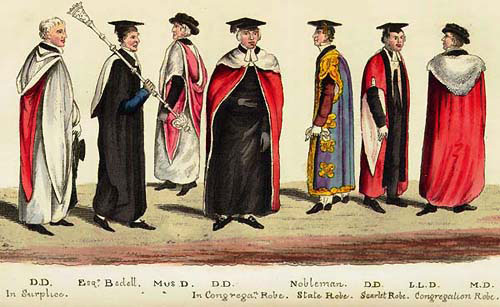
- October 1, 2024
- Accountability, Education, Governance, Higher Education, HigherEd Management, University Policy
A university culture is centered on the student, not the faculty or administration. The authority of governing is gained through levels of participation and cooperation in decision-making. The picture above shows the signature ceremony of the Magna Charta Universitatum, signed in Piazza Maggiore at Bologna on September 18, 1988, by 388 Rectors of major universities worldwide. They represented the Autoritas Universitatum of the traditional and new higher education institutions when the University of Bologna commemorated one thousand years of its existence.
The competent authority is slowly replacing charismatic, dictatorial or democratic authority. That is, professional, technical, administrative, and academic preparation is more relevant when it comes to managing institutions than the power of empathy or innate leadership qualities, although these are, of course, important. The evolution of the world of knowledge requires university leaders who combine general education with specialized training in the management of services. The university sphere, which is dominated by a ‘knowledge elite’, by a multitude of prima donnas and by an excessive loyalty to academia, has rejected participating in the process of administration. In fact, the administration is looked down on by many university groups. However, my position is far away from the corporate style. See my view on this issue (2021): «Corporate Management is an unfit model for Education.»
The role of the university rector or president is associated with political, economic, or social power, not as in previous centuries, in which this figure was related to academic, cultural, or spiritual power. Moreover, most top-down power systems at universities or those in which a president is the highest authority, whether democratic or otherwise, place almost total responsibility in the hands of the rector. Because of the power exercised by the rector, it is often impossible to know whether he or she depends on the management board or vice versa.
This is the result of legislation that reinforces centralized and even sometimes autocratic power. In contrast, the tasks that a rector must carry out are, in academic and administrative terms, clearly absurd. Thus, it is often joked that the essential qualities of a president or provost are that he or she should possess the wisdom of King Solomon, the strength of Hercules, the trickery of Machiavelli, the patience of Job, and the psychological insight of Freud. That is a lot to ask. We might even add Steve Jobs’ entrepreneurial vision and financial know-how today.
 The governability models employed and how decisions are taken at a university tend to be closely linked to whether the university exists within a society that is democratic or authoritarian. The leader of a university is conditioned by this fact, especially in his or her relationships with political authorities or pressure groups and how he or she exercises his or her functions about the university community. It should also be noted that not all management processes in the entrepreneurial system can be transferred directly to universities. Concepts such as productivity, order, and effectiveness lend themselves to very different interpretations when discussing an educational process than manufacturing cement blocks.
The governability models employed and how decisions are taken at a university tend to be closely linked to whether the university exists within a society that is democratic or authoritarian. The leader of a university is conditioned by this fact, especially in his or her relationships with political authorities or pressure groups and how he or she exercises his or her functions about the university community. It should also be noted that not all management processes in the entrepreneurial system can be transferred directly to universities. Concepts such as productivity, order, and effectiveness lend themselves to very different interpretations when discussing an educational process than manufacturing cement blocks.
Nothing is more frustrating for students and professors than for an authority to be unacquainted with university problems, particularly when that authority tries to solve these problems by implementing strictly administrative measures or politics. Academic problems, scientific debate, and attitudes that are critical of the system or of society are typical of the university community. They will always exist, but they are diffused and mediated by an understanding and conciliatory authority that can accept the differing loyalties of the heterogeneous academic community. This authority should never attempt to quash debate over ideas and problems because it is precisely this debate that is one of the mainstays of university life. Sometimes, it was more participation and sharing authority in medieval universities than now.

Therefore, even in more extreme cases, a non-belligerent approach to the university, as a platform for social criticism in light of the times and the social, cultural, and economic situation of the national or international community, cannot be curtailed by imposing rigid or authoritarian lines. This criticism and controversy push society to seek a reformist consensus that improves the quality of life.
However, there is a trend at universities, large and small, to develop authoritarian systems of centralized, top-down government or to form systems of academic resistance. Decision-making is made evident by a hierarchical system based strictly on the delegation of power and hardly ever on epistemological authority. Certainly, it is easier to make decisions under an imposed or self-imposed authoritarian system, especially in an environment such as a university where every member thinks of himself or herself as an authority. For this same reason, decisions are taken but never fully implemented. Thus, I have always maintained that any educational reform is doomed to failure if the people affected by it are not the protagonists of this reform and are not convinced of its worth (Escotet, 2009, 2021).

The exercise of authority at a university requires a dialectical discussion that flows on a three-dimensional plane, as life does, from top to bottom, from bottom to top, and from one side to another, making it a spherical relationship and not a circular one. It is a system of multiple entries and exit points, which must be viewed holistically and not fragmented. It can only be measured with instruments that can detect its volume and not just its length. That is, while most companies outside the realm of education move in a linear, Newtonian manner involving relative prediction, an educational enterprise moves in a world of uncertainty and, therefore, one of the complex processes. For this reason, authoritarian systems at universities are usually just short-term solutions, which makes one wonder what may happen in the future.
Consequently, it is indispensable for university leaders or managers, whether presidents or rectors, provosts, deans, directors, department chairs, or collegiate bodies, to be convinced that the way of governing a university is by seeking consensus rather than resorting to a ruling by decree. Consensus in university administration is based on the principle that the person who presides over the institution is primus inter pares, first among equals. In academic terms, the majority is not always right. It is worth mulling over Russell’s claim that the fact that an idea is shared by the majority does not make it true; and in view of how stupidly much of humanity acts, an idea conceived by the majority is more likely to be false than true.
 Although – logically – it has limits, the consensus is a means for decision-making in university development that is of enormous value because it accepts the fact that both majorities and minorities may be right or that both may be wrong. Borrero (1993) claims that consensus in university decision-making is both legitimate and necessary. Research has, in fact, shown that the practice of consensus tends to have a unifying effect. In contrast, the triumph of the majority over the minority leads to confrontations that make these decisions much more difficult (Escotet, Aiello & Sheepshanks, 2010).
Although – logically – it has limits, the consensus is a means for decision-making in university development that is of enormous value because it accepts the fact that both majorities and minorities may be right or that both may be wrong. Borrero (1993) claims that consensus in university decision-making is both legitimate and necessary. Research has, in fact, shown that the practice of consensus tends to have a unifying effect. In contrast, the triumph of the majority over the minority leads to confrontations that make these decisions much more difficult (Escotet, Aiello & Sheepshanks, 2010).
Management professionals are generally well acquainted with techniques that seek consensus, and they know when a discussion should continue and end. Undoubtedly, a consensus is a system for decision-making that is much more complex than other forms of participation. However, the governability of a university is built up by negotiating with people and convincing them —that is, by accepting the nature of what an institution of people is and not of objects and by nurturing the spectrum of the human condition. It is simply one more aspect of the education of students and professors (who are permanent apprentices), just as authoritarian attitudes and habits would be if these students and professors operated in an environment without dialogue or tolerance.
In short, it is necessary to build a new university culture that breaks away from a mission to satisfy the corporatism yearnings of the professor, the endogamy academic practices (2022), or the authoritarian appetite of the administrator, leaving the true protagonist, the individual who learns, on the fringe of the essence of the university. A university culture centers on the student, not the faculty or administration. We must remember that the role of the rector was exercised by a student in the origins of European universities such as Bologna or Salamanca. It has been endlessly repeated that the student is the main actor in the learning process—and the opposite has been endlessly practiced. At least, student learning was the major aim at the origin of Bologna a thousand twenty-three years ago. It is time to leave behind demagogic approaches to teaching.
REFERENCES
Borrero, A. (1993). The University as an Institution Today. Paris: UNESCO Publishing and IDRC in Ottawa.
Escotet, M.A. (2021). Corporate management is an unfit model for education. Retrieve from Scholarly Blog on December 20.
Escotet, M.A. (2021). Las políticas universitarias para una educación a lo largo de la vida. XVII Congreso Nacional y IX Iberoamericano de Pedagogía and WERA Congress 2021. Santiago de Compostela, Spain, July 7.
Escotet, M.A. Martin, A. and Sheepshanks, V. (2010). La Actividad científica en la universidad. [The Scientific Activity at the University] Buenos Aires: UNESCO-UNU Chair and U. Palermo.
Escotet, M.A.(2009). University Governance and Accountability. In GUNI (Ed). Higher Education at a Time of Transformation. New York: Palgrave Macmillan, 126-132.
Escotet, M.A. (2004). Contemporary Forms of University Government and Administration: Historical Vision and Perspective. Centro di studi universitari. Rome, Ateneo Antonianum, May 26-28.
Federación de Jóvenes Investigadores (2022). Endogamia y corrupción generalizada en la Universidad española: ¿Seguimos mirando hacia otro lado? El País, 18 de mayo.
Levy, Daniel C. (1993). El gobierno de los sistemas de educación superior. Pensamiento Universitario, 1(1), 3–20.
Russell, Bertrand (1957). Marriage and Morals. London: Liveright.
____________________________
©2024-2022 Miguel Angel Escotet. All rights reserved. Permission to reprint with appropriate citing.